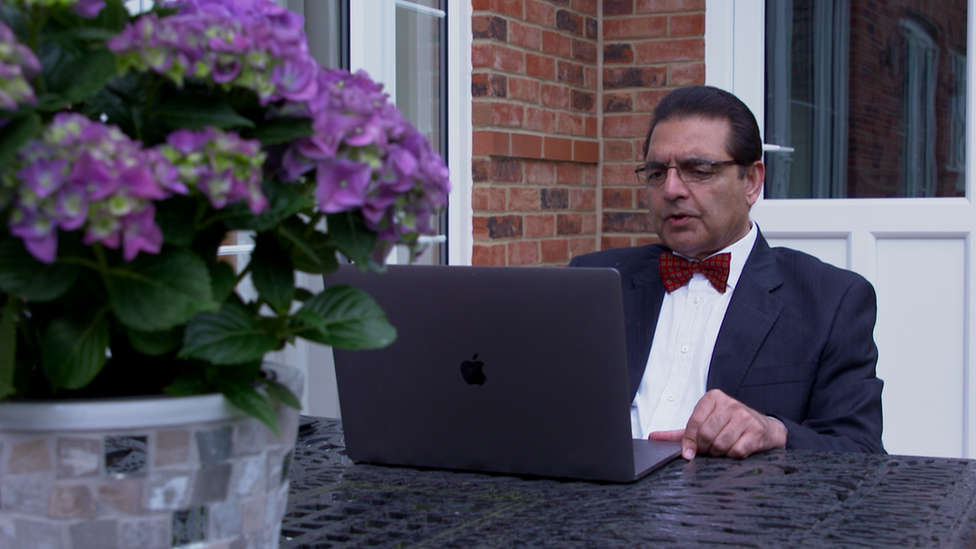Coronavirus: 'How we’re surviving a second virus lockdown'
- Published
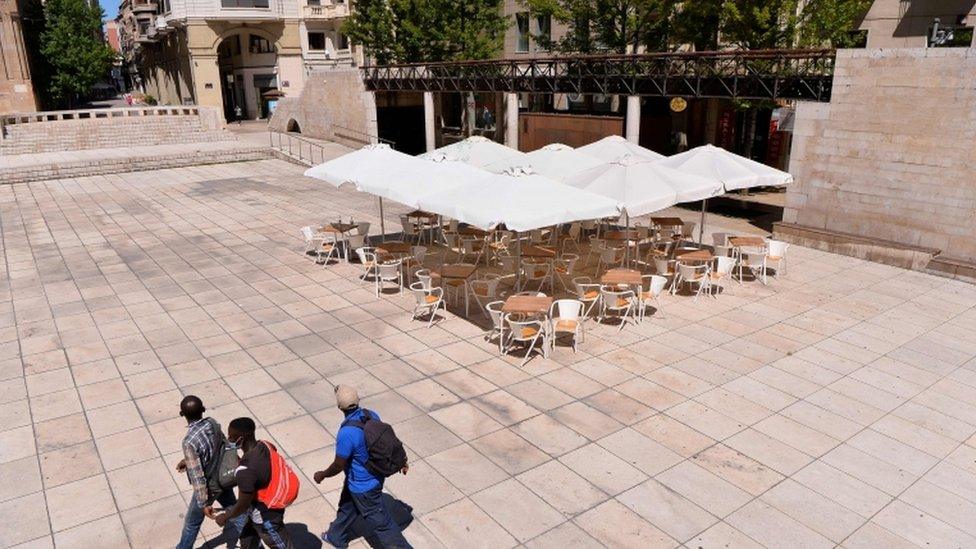
A coronavirus outbreak in Lleida, Spain has led authorities to impose new restrictions
The taste of freedom was short-lived in Lleida, where residents had hoped the easing of Spain's strict coronavirus lockdown in May would give them back the summer at least.
On Monday, with new cases rising sharply, authorities announced a second lockdown in parts of the Catalonia and Galicia regions.
They join areas of Europe, Asia and Australia where Covid-19 outbreaks are forcing locals to stay indoors once again as their governments close bars, restaurants and shops.
As scientists warn that more localised surges in infections are likely, people in four affected cities around the world give us their guides to surviving a second lockdown.
'Meditate to beat pessimistic thoughts!' - Nuria in Lleida, Spain
For software engineer Nuria Pino, 26, the re-imposition of local lockdowns has had profound psychological impact.
"We fought and sacrificed to beat and survive the first lockdown, so this feels like a defeat - a hard pill to swallow," she explains from Lleida, where 155 infections were reported in early July.

Nuria Pino says the first lockdown taught her to prioritise her wellbeing
Although it isn't as scary because she knows what to expect now, she admits the second lockdown feels worse, because it makes her feel that only a vaccine can defeat the pandemic.
Nuria has been working from home since March and says it's very lonely on her own.
But, she says, at least she learnt from the first lockdown that there's no need to stockpile food. More importantly for her, it taught her to take care of her mental health.
"This time I'm making sure I keep my work hours under control and work on my own wellbeing," she says. Meditating once a day helps to clear her mind of "pessimistic thoughts." And, unable to exercise outdoors, she stays active by playing Ring Fit Adventure - an interactive fitness game where players do workouts - on her Nintendo Switch.
"If I had to sit down watching Netflix during all my free time, I'd end up crazy!"
She also plans to use the bread-baking skills she learned in the first lockdown.
"The best tip I can give is to keep calm and be safe. We will get through any lockdown!" she adds.
'Remember, Zoom drinks aren't fun!' - Sally in Melbourne, Australia
Six weeks of lockdown were announced in Melbourne last week after Victoria state recorded 141 coronavirus cases on 7 July. On Tuesday, Victoria reported a rise of 238 cases, external after days of figures above 200.
The city's five million residents endured lockdown from late March to May, but now they must stay at home once again, leaving only for essential reasons.
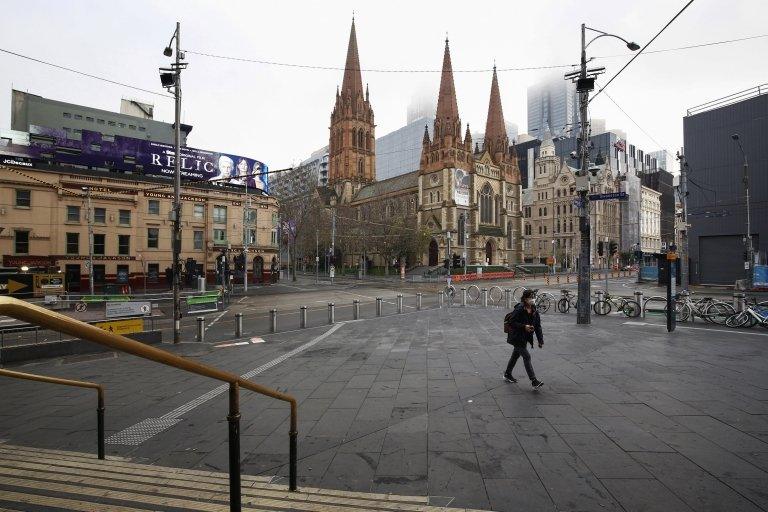
Melbourne residents can only leave home for key reasons such as work, exercise and shopping for food
"It feels like you've returned to a very mediocre holiday destination!" says Sally Gatenby, a 39-year-old marketing consultant in the city. The first lockdown was like visiting a foreign place with different behaviour and rules, she says, but now "you wish you weren't here again, but you have to make the most of it".
She too says it's disappointing to go back into lockdown after feeling like they had done "well" in controlling the virus. Australia has relatively low case numbers of 111 deaths and 10,495 infections, and its handling of the virus had been applauded internationally.
Sally's grateful to have her kitten, which she adopted during the first outbreak in Melbourne, and calls her a "lifesaver for affection and sanity".
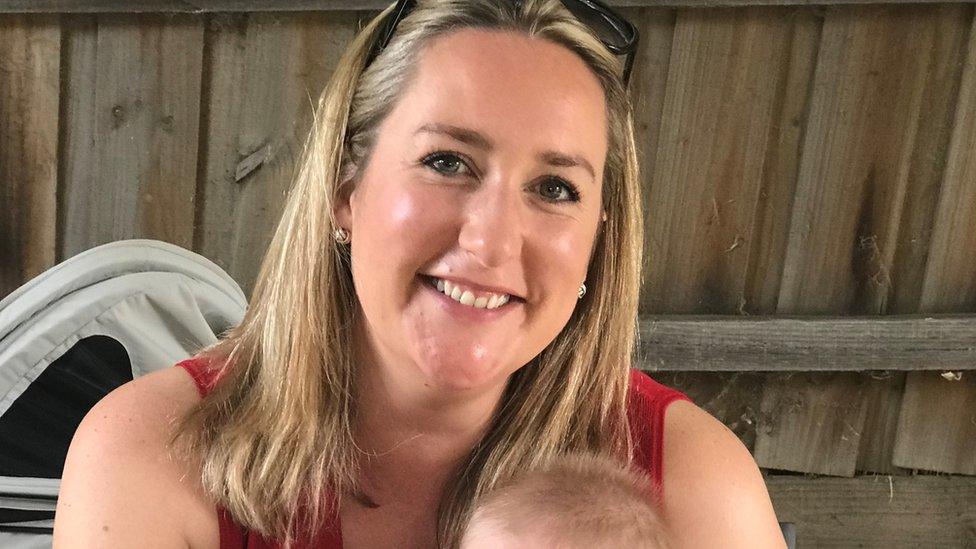
Sally Gatenby compares her second lockdown to repeating a holiday you didn't like
Her top lessons from the first lockdown include:
Zoom drinks sound fun, but they're not really
[On home baking]: Bread's better from the proper bakery (and less washing up...)
Go outside - safely distanced and with a mask (or "coughy filter" as they're jokingly called in caffeine-loving Melbourne)
Sally says she panicked less entering her second lockdown, and now it's just something to get through: "It's not better or worse per se, more that we've adjusted to the 'new normal'."
'Keep a happiness balance sheet' - Kai in Beijing, China
In late June, China reinstated a strict lockdown in Hebei province, and some Beijing residential areas deemed "high risk", affecting around 400,000 people.
Kai Wei, 29, was still allowed to leave her home but local authorities imposed extremely strict contact tracing rules following the outbreak.
"I have to report my itinerary in an app, which has to match with my location history, in order to enter any public places."

Kai Wei says people in Beijing have adopted a "keep calm and carry on" attitude
"It's definitely better than the first lockdown. Staying at home for the whole time [for nearly two months] was really terrible. I had many anxieties."
Kai says she and her boyfriend once stockpiled more than 200 masks. "At that time, no one knew how the outbreak would develop, whether the reported number of cases was true."
Kai says Beijing residents are now adopting the "keep calm and carry on" attitude. "Because everyone is cautious, so they are calm."
Kai describes her current life as "50% normal". "It's impossible to return to a complete 'normal life'."
"I returned to my office in early March. I commute on the metro and dine in restaurants, but the crowds in subway trains are two thirds of the normal size, and in restaurants, people sit with social distance."
Kai's advice to people going through a second lockdown is to keep a happiness balance sheet, trying every means to stay entertained and sane: "Live as normally as possible. And always wear a mask when you can go out!"
'Accept the rupture' - Rohit in Chennai, India

Rohit Shroff said the first lockdown in Chennai made him anxious and fearful
Perhaps surprisingly, Rohit Shroff, a 24-year-old entrepreneur in Chennai in south-east India, calls the second lockdown "relaxing". The restrictions were re-imposed in India's sixth-largest city in mid-June, days after the country's strict national lockdown was eased. Now that the second stretch has ended too, he reflects that it was much easier.
The first time round was "abrupt" and the uncertainty made Rohit anxious and fearful for his future, he explains.
But when authorities announced the second lockdown, he responded by researching the history of pandemics and said this taught him it's a normal part of human life. Reminding himself "this too shall pass" became his way of accepting the new reality.
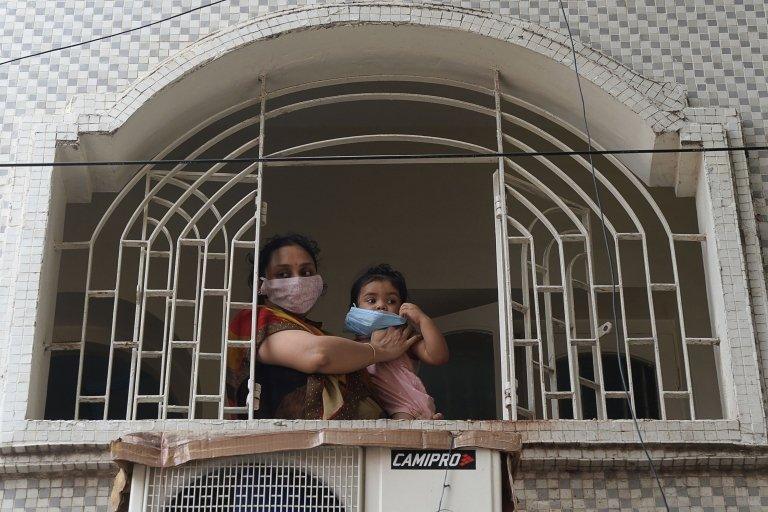
A second lockdown was imposed in Chennai, India in mid-June

He focused on spending time with his family and enjoying the slower pace of life. Barring an emergency, driving was banned in Chennai and Rohit says his weekly walk to the shops became his new Saturday night out.
"I appreciated the evening skies a whole lot more. I went up to my terrace at midnight and started studying stars - I even saw a meteor shower," he says.
His advice is to try to "accept the rupture the pandemic has brought to our lives" - something that made the second lockdown a positive time for him.
Reporting by Georgina Rannard and Zhaoyin Feng
- Published8 July 2020
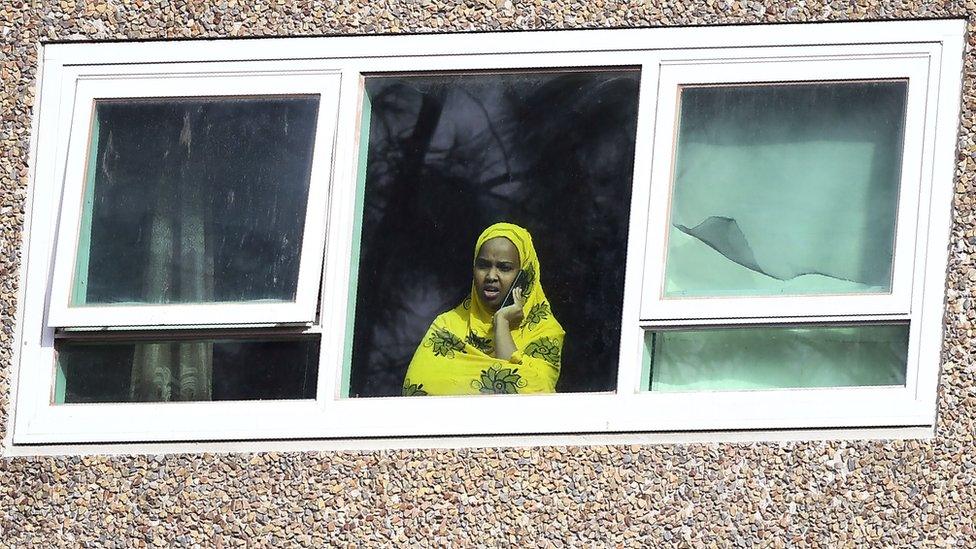
- Published13 July 2020

- Published10 July 2020
